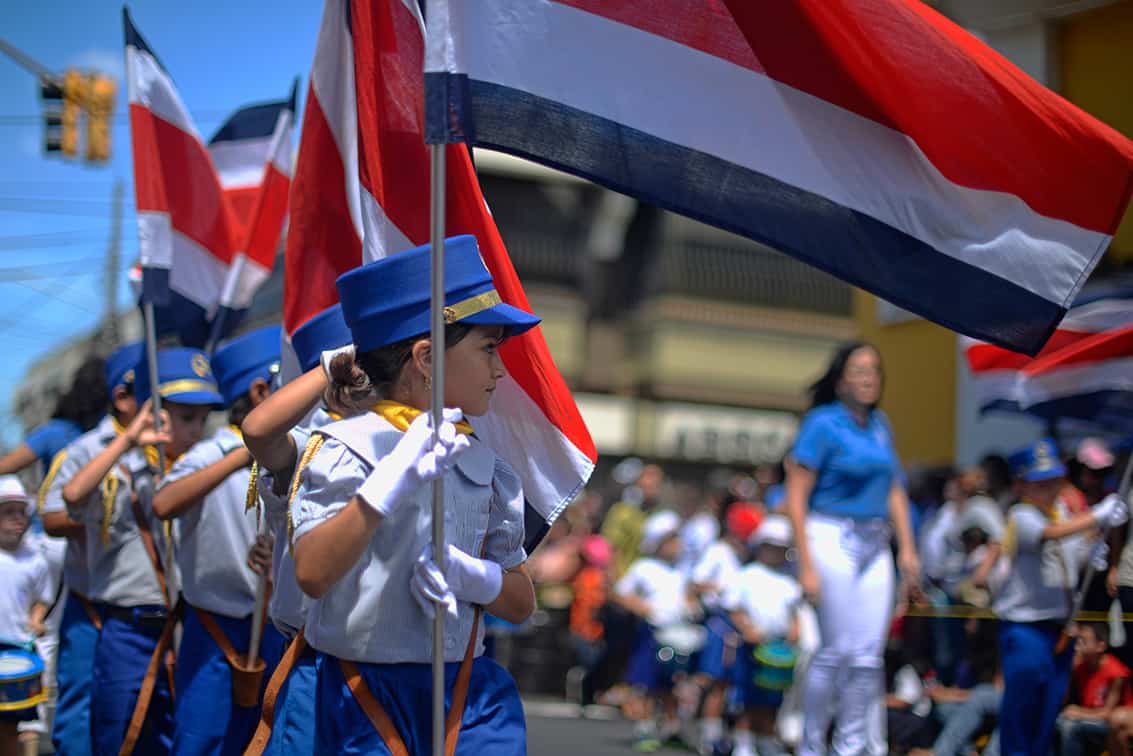As Costa Rica celebrates its Independence Day, we explore the history and meaning behind its national anthem, “Himno Nacional de Costa Rica.”
The history behind the National Anthem
In 1852, a diplomatic mission from the United States and England was due to visit Costa Rica.
Then-president Juan Rafael Mora Porras asked Manuel María Gutiérrez, director of the Military Band, to compose music for the National Anthem of Costa Rica, in order to perform it on the day of the mission’s arrival.
On June 11, 1852, the music of the National Anthem was performed for the first time in the Government House.
The current lyrics to the National Anthem were written in 1903 by José María Zeledón, who won a contest to create lyrics to the existing music. The National Anthem, with its modern music and lyrics, was sung for the first time on September 15, 1903, in front of the “Metallic Building” in San José.
The National Anthem is not a war song; rather, it tells the story of a democratic people, of farmers who have not experienced great conflicts. Take a listen:
Meaning of Costa Rica’s National Anthem
First stanza:
Noble Patria, tu hermosa bandera
expresión de tu vida nos da:
bajo el límpido azul de tu cielo,
blanca y pura descansa la paz.
The national flag faithfully expresses the life of Costa Rica, characterized by always seeking conciliation, as well as by the virtuous purpose that guide its destiny.
Second stanza:
En la lucha tenaz de fecunda labor
que enrojece del hombre la faz,
conquistaron tus hijos – labriegos sencillos –
eterno prestigio, estima y honor.
Here, the virtues of the Costa Rican are exalted, particularly the will to work and the sense of national honor. This stanza refers to Ticos as labriegos sencillos, simple farm hands, whose pride is earned by operating plows and shovels rather than arms and ammunition.
Third stanza:
Salve oh tierra gentil
Salve, oh madre de amor
Cuando alguno pretenda tu gloria manchar,
verás a tu pueblo valiente y viril,
la tosca herramienta en arma trocar.
Costa Rica is a welcoming land for nationals and foreigners. But when Costa Rica is threatened, Ticos will transform their tools into weapons to defend their way of life and independence.
Fourth stanza:
Salve, oh Patria
Tu pródigo suelo
dulce abrigo y sustento nos da.
Bajo el límpido azul de tu cielo,
Vivan siempre el trabajo y la paz
Costa Rica’s fertile soil provides its people sustenance and shelter. In Costa Rica, peace and work are inseparable, because they originate from the same source: freedom.
This story was adapted from an Education Ministry presentation. Download the original presentation here (PPT).






